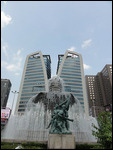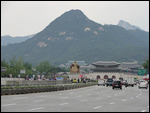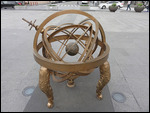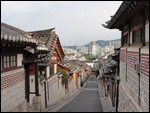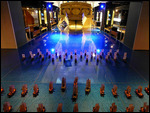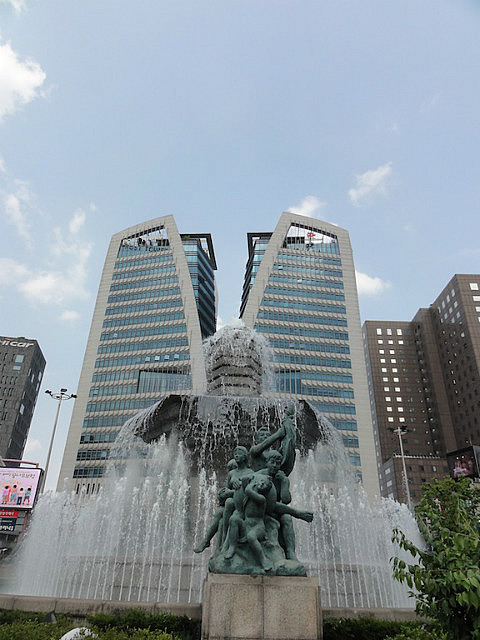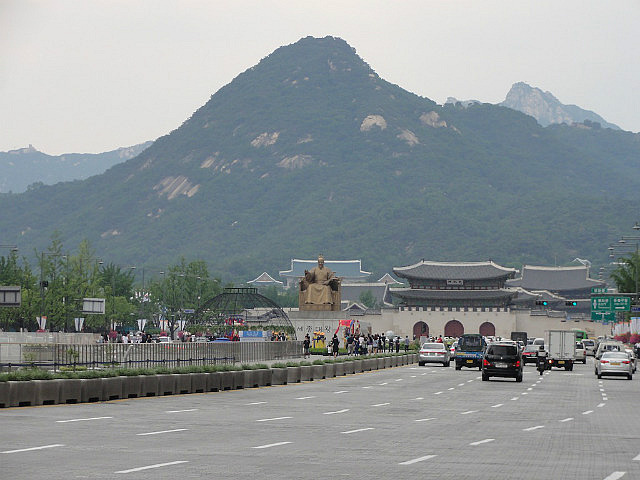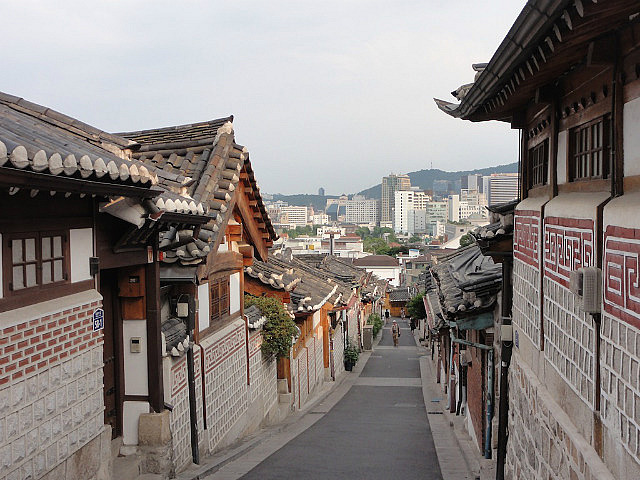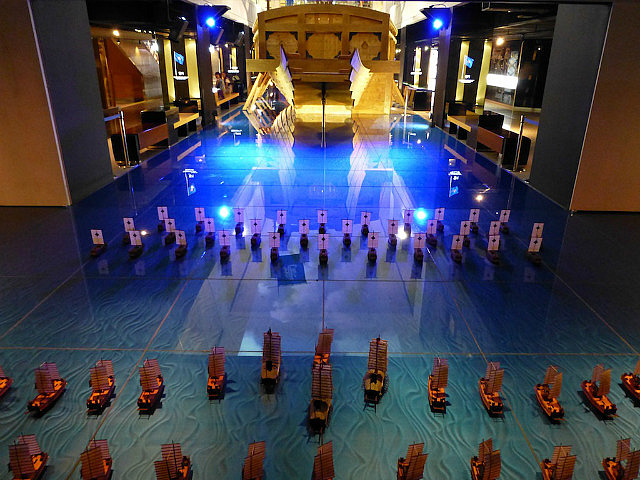After the immaculate nature of the Japan experience, any other country was going to suffer in comparison. The first things we noticed on arriving in Busan was that the streets were not squeaky clean anymore. Traffic did not resemble computer models, drivers rudely passed around slow vehicles, some elements of chaos existed. The high speed train from Busan to Seoul matched the Shinkansen in terms of speed (300 kph) but its exterior had a layer of dust over it. Sure, this may seem petty but that is what Japan does to you. It is not as if Japan is dust free. We once saw a cleaning woman coming down an escalator with towels in both her hands which she held firm against the hand panels. Even at the end of her trip, she continued moving her hands over the panel and along the sides.
Once the Japan reverie wore off and our minds opened up, Korea asserts itself as a venerable nation with a unique culture. The first thing Korea points out is its southern neighbour's aggressive history and how Korea suffered as a result. And then to its past glories, its heroes like Yi Sun-shen who battled the Japanese victoriously at sea, its wise King Sejong who saw reforms and scientific inventions that are as good as any that came out of the West.
Both these luminaries have museums devoted to them under the main plaza, Gwanghwamun, that makes extensive use of multimedia describing their achievements. Curiously enough, every event in King Sejong's life is tagged with the length of his reign at that point.
Of course, all that is past history, the testy relationship with its northern neighbour is immediate and present and that is sadly yet unsolved.
One learns fast in Korea that addresses, street names and numbers don't mean anything and nobody uses them. All navigation is through landmarks. When we asked our hostel staff in Seoul the way to a nearby Hanok village, she quickly jumped to her computer and showed us the way through Google Street View. That hostel is within 3 minutes walk from 2 Metro stations but it is tucked away from the main street and you could go around in circles without finding it.
Our Guest House in Gyeongju was just 1 km from the bus terminal, but we chose to take a taxi just so we could give the name of the place, SaRangChae, to the driver for him to find it. The minimum fare (< $2) was good enough to cover the distance. We managed with our feet the rest of the way, although we did get lost once among all the historical sites that surrounded the guest house.
Seoul is old and difficult for the foreigner to grasp, but a little bit of familiarity is rewarded with plenty of sights. It can be a little friendlier to vegetarians, but we will take the broader view :-). The beautiful mountainous coastline in the east with the pretty city of Sokcho (pr: Soak - Cho), and the beautiful city of Gyeongju left a lasting impression. The Korean language and place names are challenging to foreigners (Japanese and Chinese are not as difficult) and this makes it hard for someone on a short visit. Streets, palaces, train stations - one needs these names to stick in order to be able wade one's way through a strange country. This is more our fault than Korea's, but it did prove to be a hurdle. Given some more time and maybe even learning the Hangeul alphabet (the locals boast of it being the most scientific phonetic system that fits in nicely with contemporary computer systems) would have made a lot of difference. That, for now, shall remain a wish as it is time for us to move on to another country. We are sad to leave.
